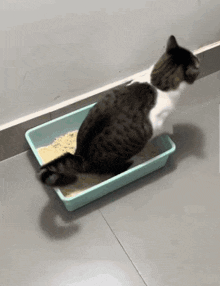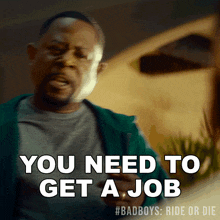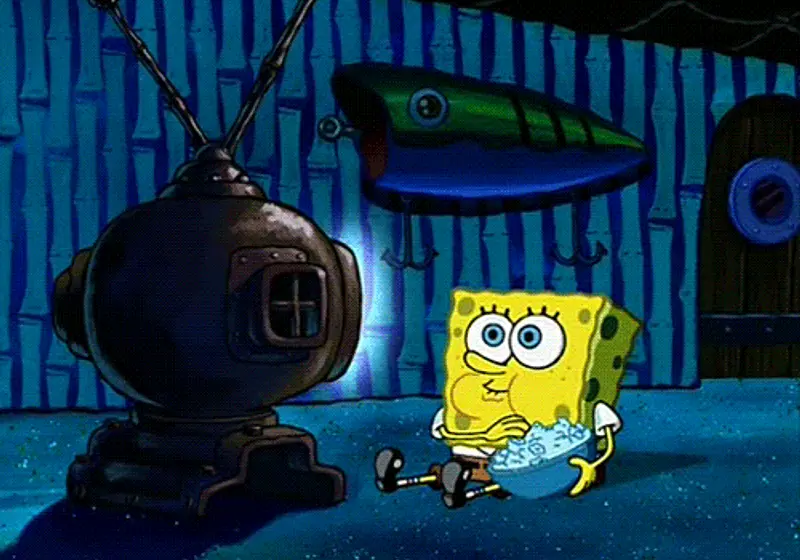I've been working on a project for about 3 years now and it is time to get it done! I've asked a friend of mine to give me a deadline, so from now until October 1st, I am going to put pen to paper, key to doc, and get it done. If you stick around until the end I'll show you how to apply this system I've devised to more than just writing.
Quick note: When I say I devised this plan, I mean that these are my personal tips and tricks that I have compiled together for myself to use, and have decided to share it with others to hopefully help them. I learned these methods through trial and error. That is not to say that they didn't exist before, I just didn't draw them from any place or person.
Let us slide into your dms 🥰
Get notified of top trending articles like this one every week! (we won't spam you)Schedule Outline
I've spent my first day creating a schedule. This will without a doubt be tweaked a bit as time goes on. I've decided to do this in phases, which are different from how I've previously been writing. Since I started, I've been writing this 1 episode at a time, and although I have a general idea of what I want to happen and where I want to end, but had no real plan on how to get there.
Schedule Failure:
Right after I decided to do this, Life got in my way, there was an unforeseen circumstance, and I got majorly knocked down. So now instead of June, it is August. I don't want to move my end date too far back, I did push it back 1 month, from September to October, but otherwise, we are going to power through this, and get it done anyway.
Here's why: I don't like to quit, I want to make 14-year-old me proud, 3 years feels too long. And most importantly, you can always edit later, but you can't edit what isn't written.
Take the Quiz: What Type of Notes Should I Take?
Discover the best note-taking method for your learning style!
Phase 1: Pre-writing
In this phase, I am going to prepare for typing. This is the most important stage. Phase 1 is the foundation of the whole thing. Prewriting takes the most amount of time.
Just a quick explanation, I'm calling these "phases" instead of "steps" because each thing has multiple steps, but all the steps fall under a certain category.
The crucial thing here is this whole stage happens in my Story Journal. Which means, I'm physically writing this down with a pen and paper. This is a very helpful trick.
First off, when you write something down, it helps you remember it. Second of all the pre-writing is most of the work, so by the time I'm typing, I'll be on my second draft.
The first thing I'll do is write out a basic plot map of everything that will happen from the first episode of the first season to the first episode of the second. I'm not going to write season 2 yet, but I need to have the storyline of season one to flow seamlessly into the new storyline in season two. This will be the hardest part for me because I have always written freely and skipped over super strict outlines.
After all the basics are written out, I will then expand each major point into an episode, and then further break that episode down into important points, that will later form scenes and/or specific lines.
Now I'm going to start sculpting the scenes and important moments into a cohesive string. At this point, 98% of the writing is done. What we should have is the scenes, the important details, then specific lines I need my characters to say, as well as places and objects that need to be featured.
Phase 2: Writing
This is the easy part! Why is this the easy part?
I'm glad you asked. This is the easy part because I've already done all of the work! You'd know that if you were listening earlier
Now that every scene of every episode has written out in full detail in the pre-writing stage, I just log into my screenwriting program and type what I wrote. I'll edit as I type, so as I said, I'll be on my second draft by the time I type my first.
This is also where I'll add in more specific details, special little gems, and occasionally add a visual aid.
Phase 3: Editing
And now we wait. No, seriously, we wait. The less time there is between writing and editing, the fewer mistakes you'll catch. So at this time, I may go back and look at episodes 1-4 and edit them because I wrote those years and/or months ago, so I'll be able to really tear apart the episode second by second, making sure everything is meeting satisfactorily.
YOU ALWAYS WANT TO FIND SOMETHING WRONG WITH THE DRAFTS!
As dumb as that may sound, it's true. You need to come to terms with the fact that you are human, therefore nothing you do is perfect. Even when you get to the final project, you may end up wishing you had changed something, and that is exactly what you want.
When I look at the first draft of Episode one, vs where we're at now, 3 years later, the main structure is still there, but I would've been embarrassed if that first draft would have been produced, but as of now, Episode 1 could come out tomorrow and I would be completely happy with it, even though I could probably find something to tweak.
How to Apply to Other Situations
You can apply this three-phase-system to any and everything. You just have to think of the before, main objective, and after. It's also helpful to write it out physically, but if you'd rather typing it, that is passable.
I recommend physically writing it out because writing improves memory. Although that is not necessary for everything you use this method with, because you can use it with something as simple as taking out the trash.
Before:
This is the phase where I'd recommend writing things down, because the first thing you're going to want to do after you've identified your objective, is to make a list of everything you need to do to get your task done. Once you've done this, you are going to want to collect all of the things you will need to complete your main objective.
Example:
Congratulations you're moving into your first apartment. You're excited, but, where do you begin? Well, if you follow this three-phase method, the first thing you would do is make a list of three categories of what you need to do: Prep-Work, Main Objective, and Review.
In this case, the main objective of = Moving and Settling into Your New Apartment
From your first list, you will make a more detailed list, starting with your prep work. This list may include; what you need to pack, what transportation storage you need, how you're going to move (i.e. hiring movers, renting trucks, asking friends and/or family for help), donating or throwing out things you don't want anymore, etc.
Next, you may a schedule breaking down what you between now, and moving day. This may include labeling your boxes by room, packing said boxes up, just getting all of your ducks in a row.
Now is where you stop thinking, and start doing. Knock out your prep-work list. Get your stuff sorted, packed, organized, and to your new place.
Main Objective:
This is your goal, what you want to get done. At this point, you should have all the pieces you need in order to just do the task at hand. One of the best parts about this three-phase system is that when it comes time to do your main objective, you barely have to do anything.
Example:
Now that you're at your new home, it's time to achieve your main objective. In the last step, you completed the lead up to this stage, and now all you have to do is unpack your stuff.
After everything is out of the boxes, and where you want it. Sit back, relax, and wait. But first, maybe you should properly dispose of those boxes...
After:
Here is where you run basic check-ups to make sure that everything ran smoothly and that everything is done, and done correctly. You should make sure that whatever your task is has been completed to your liking. Even if what you are doing is for someone else, you should be satisfied with the outcome, and if it falls short of your expectations, do a little more work to get it up to standard.
Example:
As time goes by, you may begin to notice things about your setup that you don't like. Maybe you should move this lamp here and this mirror there... what if you bought a rug!? Just like everything else in life, as you develop and grow, your space will begin to change. You'll find that some things don't work as well as they use to, or you may simply outgrow something.
No matter what you wish to use this system with, you can always break something down into its 1;2;3s. You may not need lists or incredible details, but it's always helpful to figure out what you're doing, get yourself to do the task at hand, then step back and look at how you can improve it.
Follow My Writing Journey
If you would like to see how my writing journey is going, or if I'm going to keep myself accountable on this 3-Phase-System, I highly suggest you go check out my Instagram where I will be documenting my steps. Starting here:
A post shared by Alicia Renee (@itsjustalicia_4700) on Aug 25, 2020 at 11:49pm PDT
When the process is complete, I will be posting a video on my YouTube Channel, which you'll be able to find in my profile at that time, if you are interested in this journey.
















